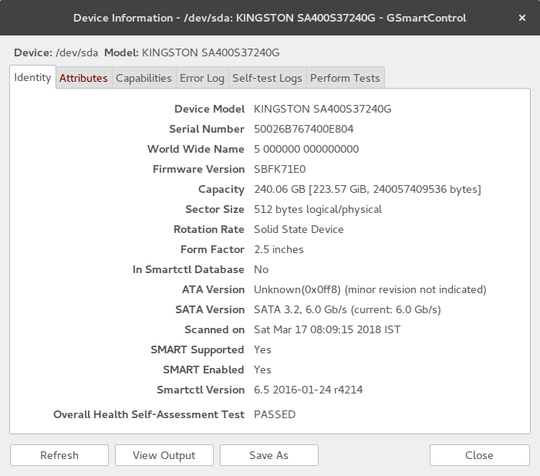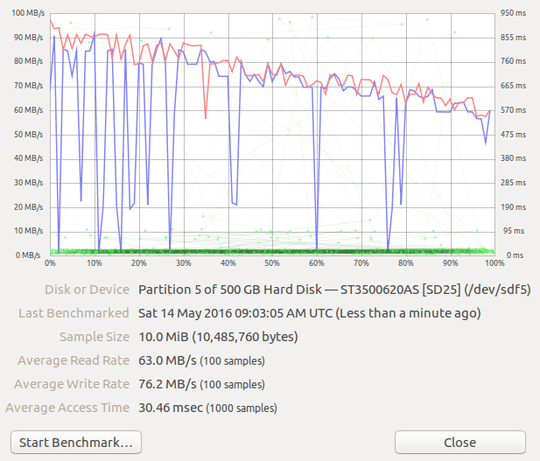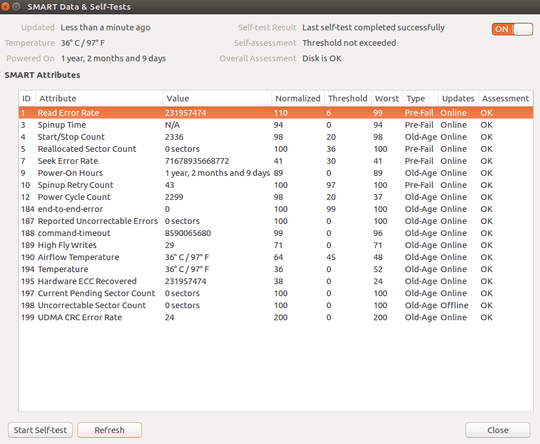129
45
My SATA drive started clicking and I was unable to access the data. It was not clicking loudly though, like a drive that has already gone bad. After tightening the connections to the hard drive, it stopped clicking and I was able to access the data again. I have started to move files off of the drive, but I think this drive might still be in good health. I didn't find any data corruption and I haven't had any trouble accessing any files. I have never had an SATA drive fail before so I'm thinking that it could have just been the loose connections that was causing the problem. What tests can I run on this drive to find out how healthy it is?
This is the hard drive in question: HITACHI Deskstar T7K250 HDT722525DLA380 (0A31636) 250GB 7200 RPM 8MB Cache SATA 3.0Gb/s 3.5" Hard Drive -Bare Drive



1Oh, when I answered you hadn't mentioned that it was a deathstar. At least some of the Deskstar line has a very bad reputation for longevity and reliability. Bad enough that the failing drives are termed "deathstar". – Slartibartfast – 2010-08-04T02:02:29.033